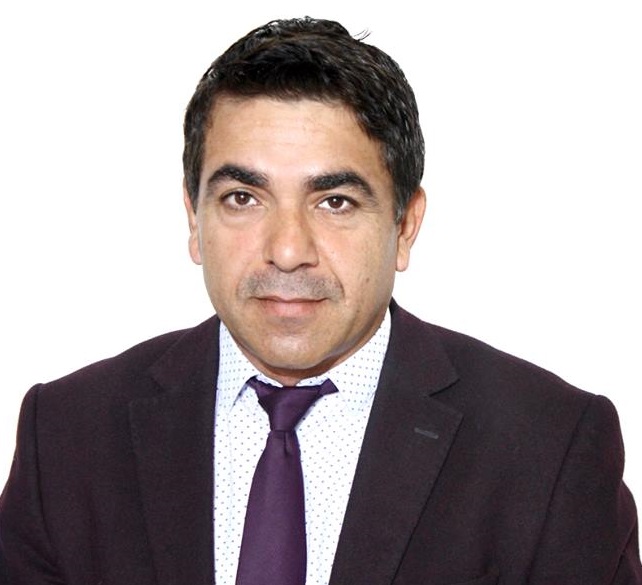The Coronavirus outbreak is a sudden shock to the world that made and deepened economic crisis. However, an efficient government does not only increase its capacity to challenge the expected and unexpected events, it should rather be able to act fast. To discuss this, I will focus on water crisis in Iraq.
In simple terms, economic shock refers to any imbalances between aggregate supply and aggregate demand, in which either demand, supply, or both contribute to. If you live in the Kurdistan Region, or any other part of Iraq, and you are still young to remember, I recommend that you ask your parents about the multiplicity of crises in the country. They will definitely count for you a series of crises they were bumped with during the last four decades; be it oil, gas, petrol, food, accommodation, jobs, water, and many more predicaments.
Turning to Coronavirus vis-a-vis water crisis, figures show that almost 2.4 billion people are living in “Water Scarce Areas”. While physicians continuously are telling us to wash our hands, faces, clothes, etc, frequently, who shall be blamed for not providing adequate amount of potable water: the nature or the governments who have not taken water crisis seriously?
In this context, it can safely be said that Iraqis are at risk of further water crisis in the residential sector. Ironically, a rainy day is as problematic as a dry day. When it rains cats and dogs, hundreds of houses sink into water. When it doesn’t rain, the families scarcely get ‘the luxury’ of being provided with appropriate water, particularly during the blazingly hot Summer (late June to late September).
For several reasons, including industrial and residential expansion, demand for water has shifted up. For example, according to a master’s dissertation submitted to the University of Salahaddin (2020), demand for water in Erbil has increased from 156 million m3 to 165.6 million m3 in Erbil from 2017 to 2018. The good news is that Iraqis can use more water, drinking or otherwise, than two decades ago.
While increasing public expenditure since 2005 and until recently has largely been responsible for the less reasonable expansion of aggregate demand, the supply side was not fairly responsive. To overcome water crisis, there has been less cooperation between the government (e.g., through prices) and its people (e.g., reducing waste) as well as among the local and the neighboring governments. Politically, failure of coordination among governments plants hate among nations as opposed to love. For example, the GAP project by Turkey’s Government, which can perhaps extend the political power of Turkish elites over the region, is threatening the Kurds and the Arabs in Iraq.
Having said that, we should not quote the government officials’ frequent statement “We do not have a hand in it, it’s made by others” for every single problem. Capacity expansion of government abilities are also related to domestic officials and political elites’ willingness and skills. According to a report by https://www.bayancenter.org/en/, the amount of the water of the Tigris and Euphrates rivers entering Iraq from Turkey’s side have decreased by over 60 per cent in the past 20 years or so. The question here is that in reserving a fraction of that wasted “60 per cent”, did anyone prosecute and put handcuffs on the Iraqi officials and political elites’ hands? I doubt that.
Moreover, similar to a large part of the country, almost 50 per cent of the water-supply system is old and in a poor condition in Erbil, as explored in the same master’s dissertation mentioned above. Due to this, it leaks before it reaches households. Disrupting water supply has become the norm, only supplied for a few hours per day. It is also a norm to reserve water in tanks. Mostly during summer and early autumn, people sometimes buy water in the market. In the Kurdistan region, and perhaps in other cities, the network of water pressure is for several reasons too weak to push the water up to the households’ reservoirs, which are mostly established on the top roof of the houses. This is one of the reasons why many families have illegally installed water pumps for pumping the water up to fill their reservoirs. Of course, not every family is able and willing to do so. Consequently, inequality in this respect is increasing.
Taken these all into consideration, though people are hopeful that summer’s heat may beat COVID-19, this summer and its subsequent months can be different. If the outbreak continues, people may need to use more potable water. Drinking water supply crisis, including a sudden rise in the price of water, the crisis may spread everywhere in the country. Hence, challenging the virus will become more difficult. The same circumstance may occur if the virus returns in the future. Expectations influence the level and speed of spreading crisis. Water crisis can easily spread across the country if it is only expected by people.
Indicators of a good governance are many. Shortening the crisis time, slowing its severity, and reducing its frequency should be the highlight of the list. In this regard, it is the crucial time for local, national even regional governments, to replace the notion of “made by others” with “enhancing coordination”, slowing down their conflict, and acting fast in order to overcome possible drinking water crisis alongside preventing further economic predicaments.
8 April 2020
(* ) Assistant Professor, Lecturer at the University of Sulaimaniyah, and Market Research Manager at Faruk Investment Group
Copyright Iraqi Economists Network 2020
http://iraqieconomists.net/en/
Download PDF








Comment here